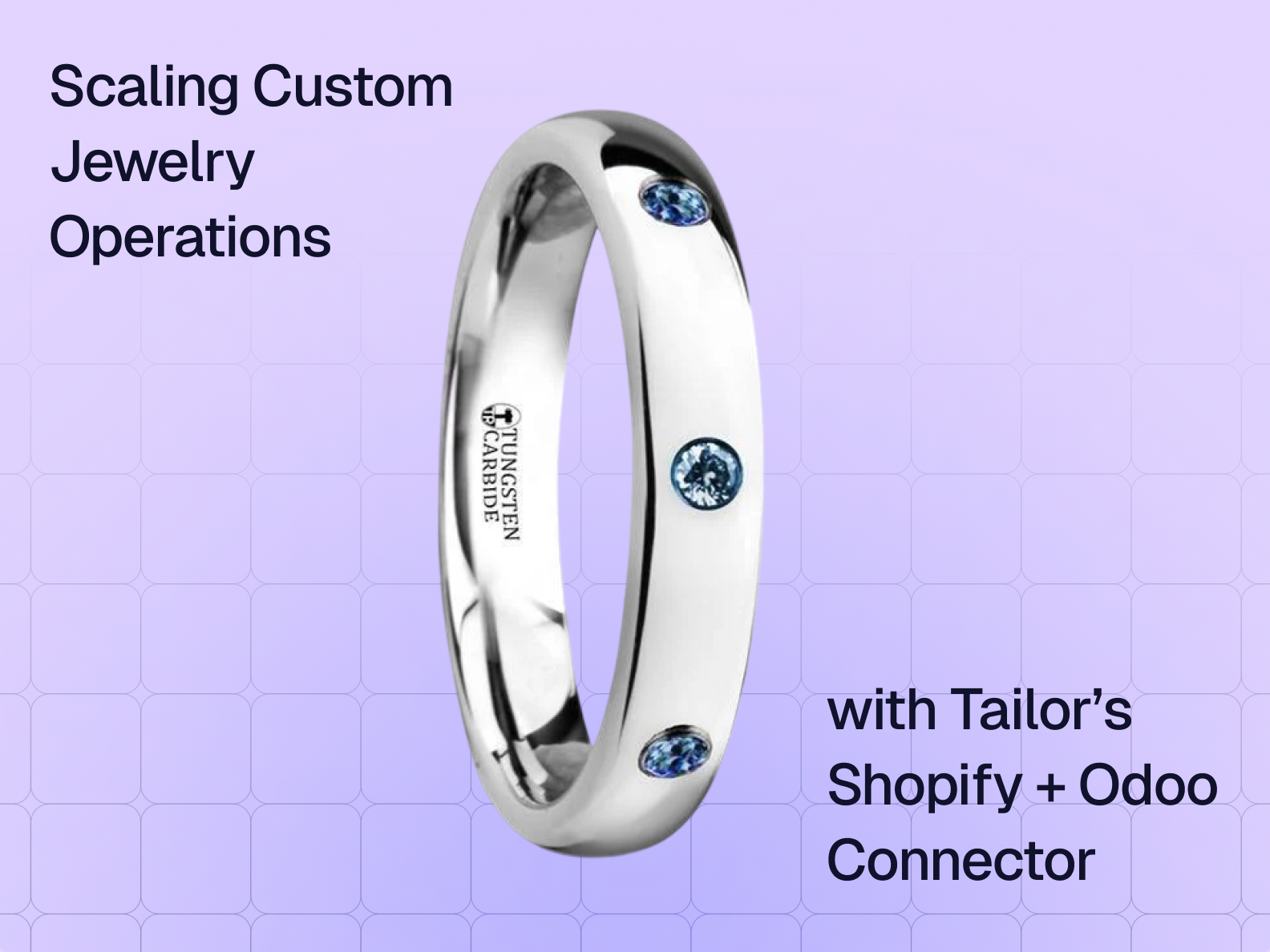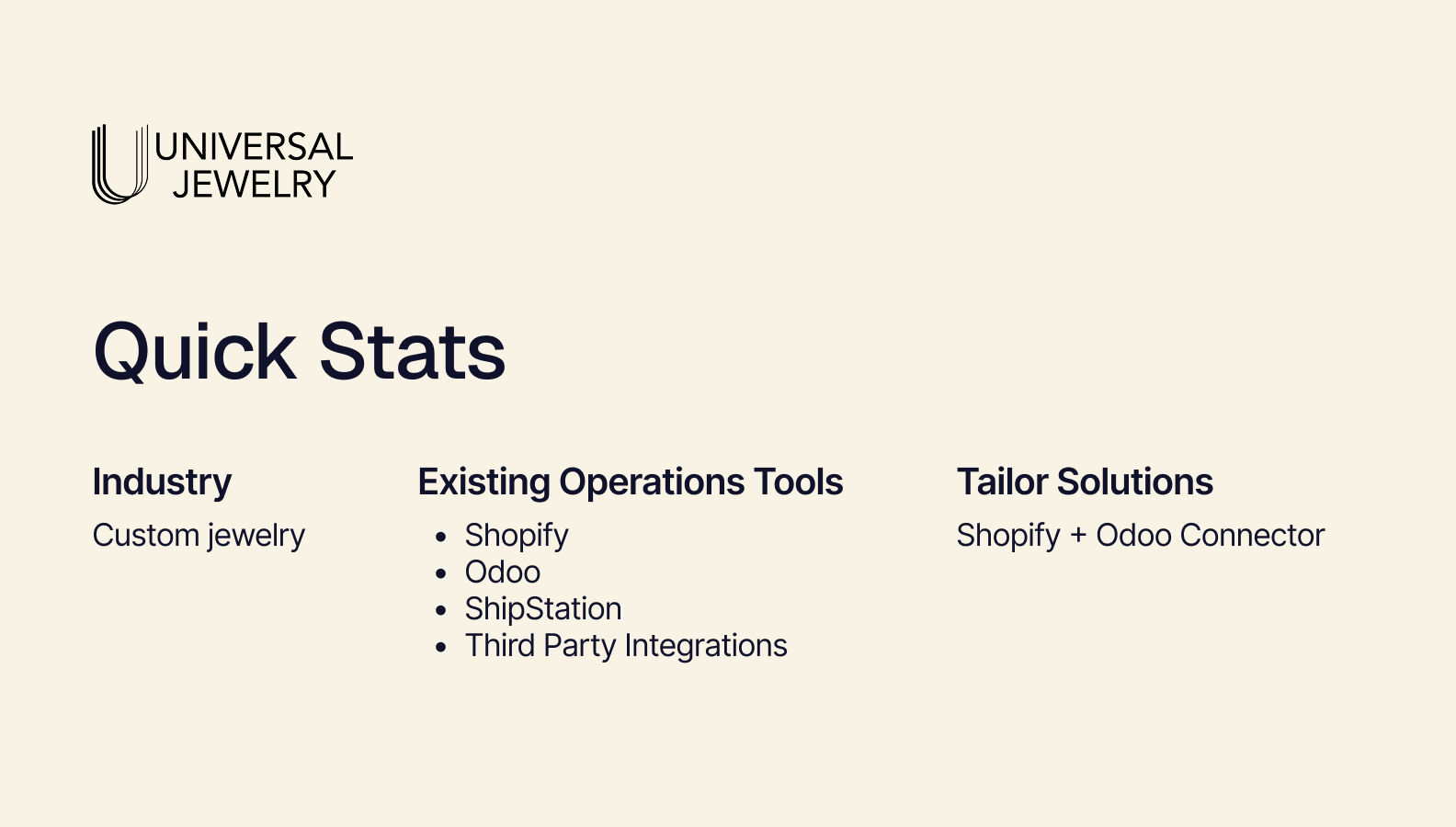
Universal Jewelry started with a simple mission: to provide unique, personalized men’s wedding bands in a sea of sameness. Now, the California-based company is an omnichannel wholesaler providing made-to-order jewelry in a wide range of metals and styles.
Universal Jewelry’s founder, James Kao, is still closely involved in optimizing the business’s structure and technology stack, and has helped the company navigate a hybrid business model:
- DTC Ecommerce through its flagship Shopify site and two smaller brand-owned retail sites
- A growing wholesale business, previously run as a separate entity, now consolidated for operational simplicity and unified reporting
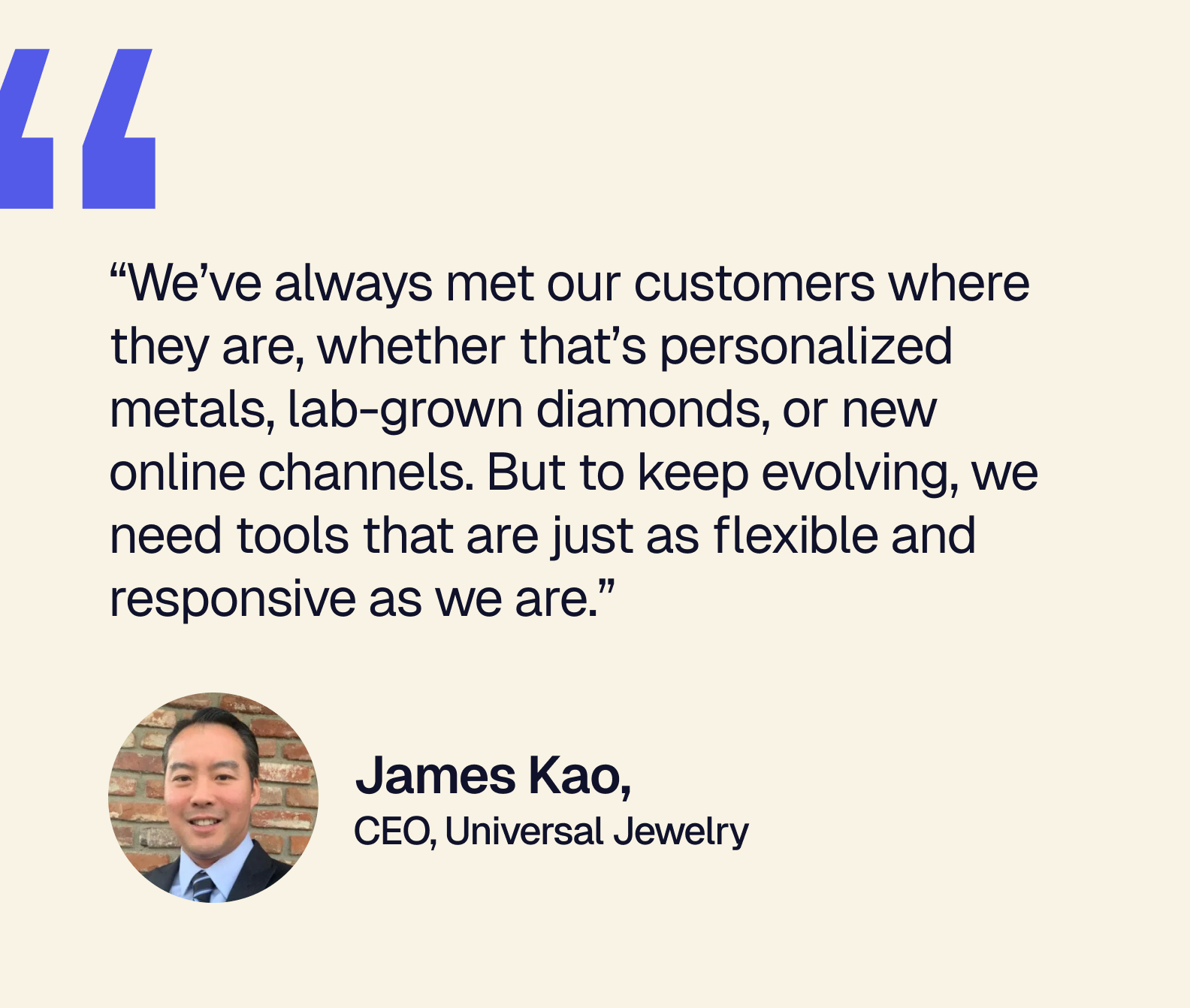
The company manages four active websites, including acquisitions and spin-offs, and relies on platforms like Shopify, Odoo, and ShipStation to run its day-to-day operations. Universal Jewelry’s products are sourced and imported directly — and the team juggles both retail and wholesale orders, complex pricing structures, and inventory across multiple product lines and fulfillment channels.
Watch the video
Problem: Broken automations, bad data, and painful communication
Given Universal Jewelry’s unique operational structure — plus with customers on various marketplaces and channels like Etsy, TikTok Shop and Pinterest — the ops team found itself unable to scale order processing as the business grew.
The company was already using Shopify’s composable commerce to power its DTC storefront, and had switched from spreadsheets to Odoo for inventory management with the help of an implementation agency. But without a native, first-party integration between the platforms, Universal Jewelry relied on a third-party connector app to sync order info — which ultimately resulted in slow and error-prone updates.
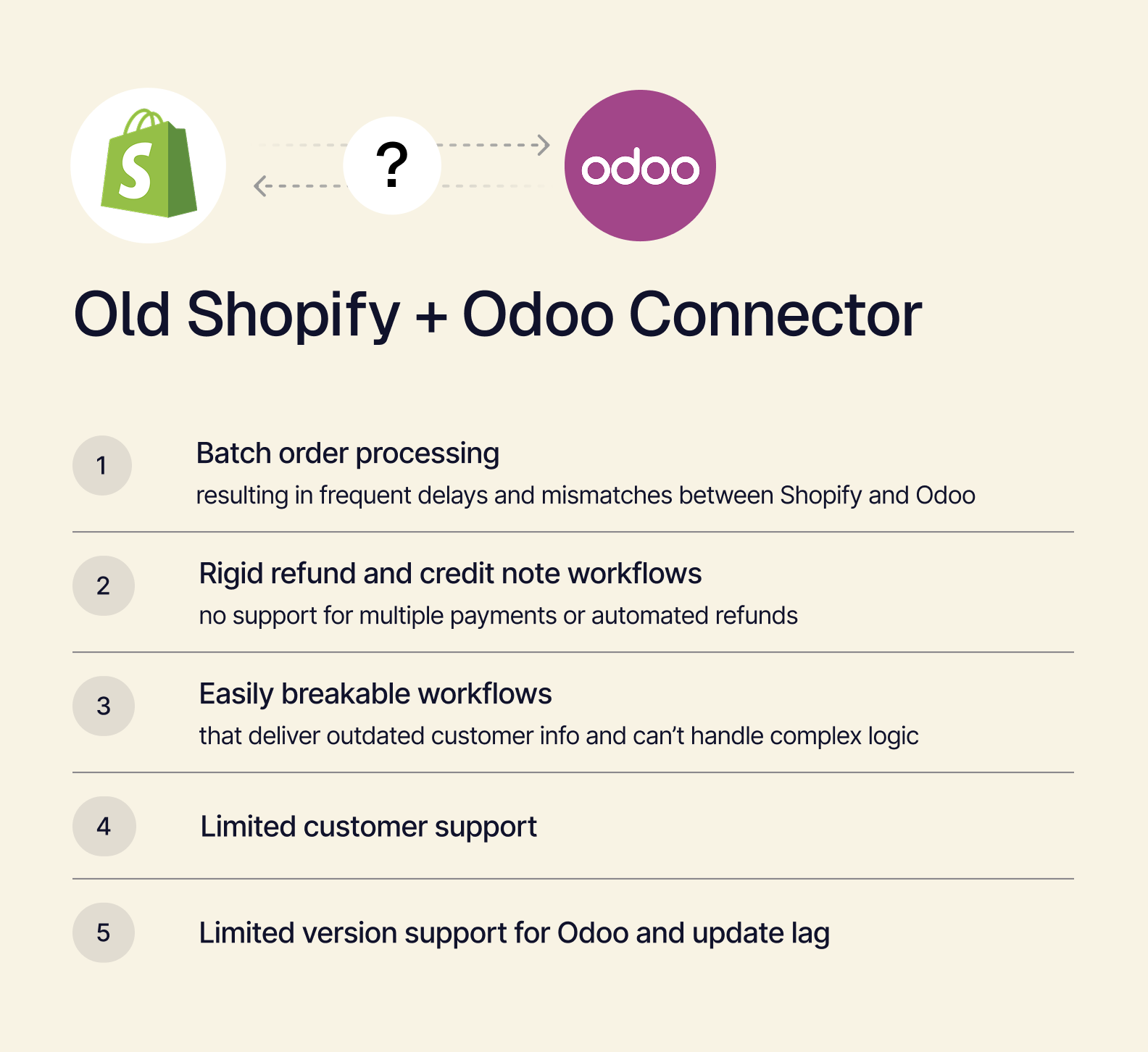
Like many growing brands, Universal Jewelry relied on a single IT admin to handle the day-to-day systems issues. Matthew Laskowski, Order Processing Representative and Engraver at Universal Jewelry, frequently found himself caught between their Odoo implementation partner and the connector’s support team — which made dealing with constant order and accounting issues even more painful.
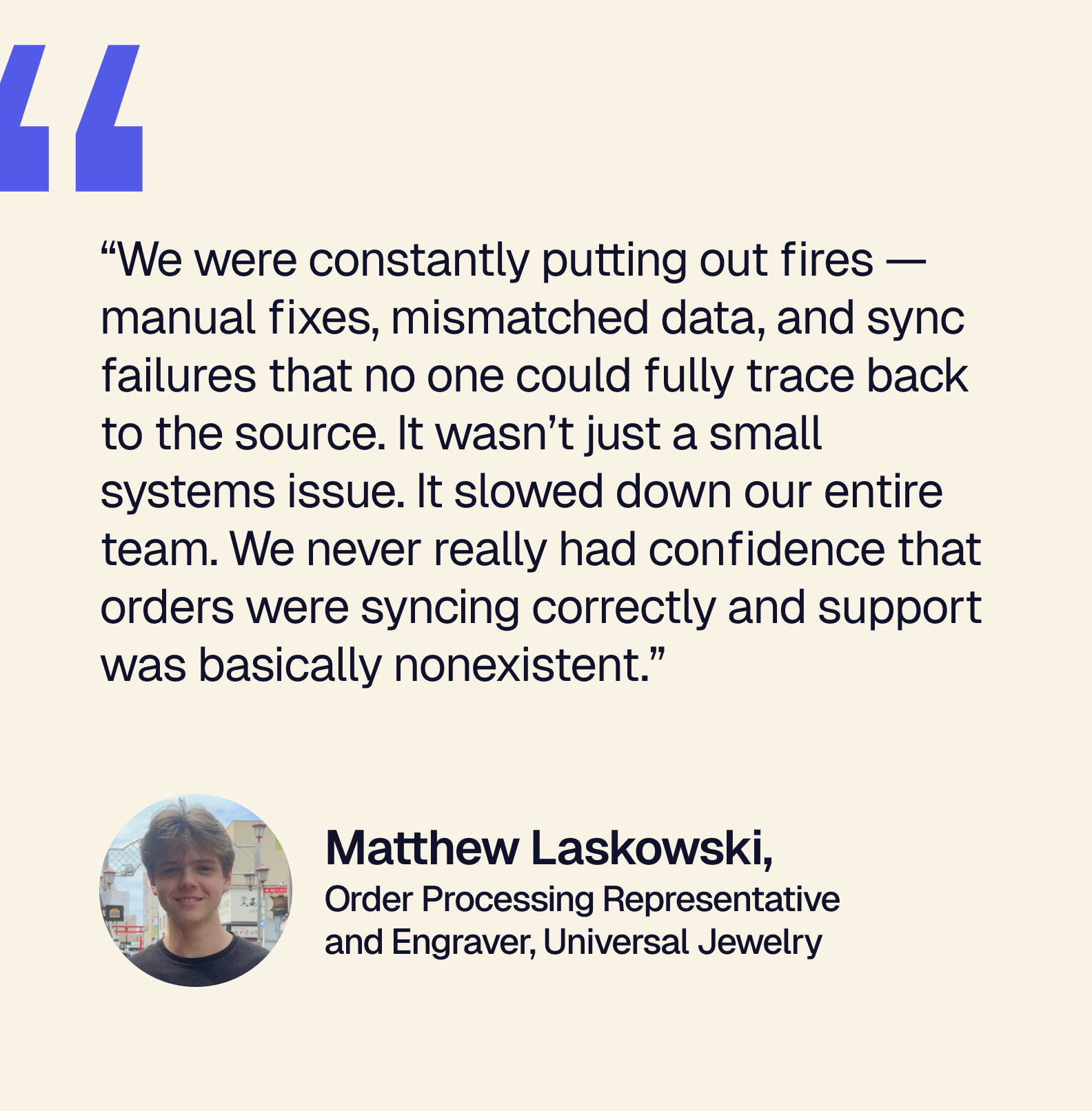
On top of issues with their third-party connector app, ongoing work with their Odoo implementation partner was also a challenge for Universal Jewelry’s team. Communication gaps, lack of dedicated project management, and minimal business context often led to trial-and-error development. Plus, Odoo’s limited documentation and lack of robust open APIs made it difficult to build reliable, scalable integrations without deep internal expertise.
Solution: Custom logic, real-time data, and dependable support
To stabilize operations ahead of the holiday season, Universal Jewelry partnered with Tailor to implement a native Shopify + Odoo connector — designed for real-time sync, error handling, and logic customization out of the box.
Unlike other third-party connectors, Tailor provides both the product and hands-on support — which means faster iteration, tighter alignment with business needs, and direct access to engineers and retail ops expertise.
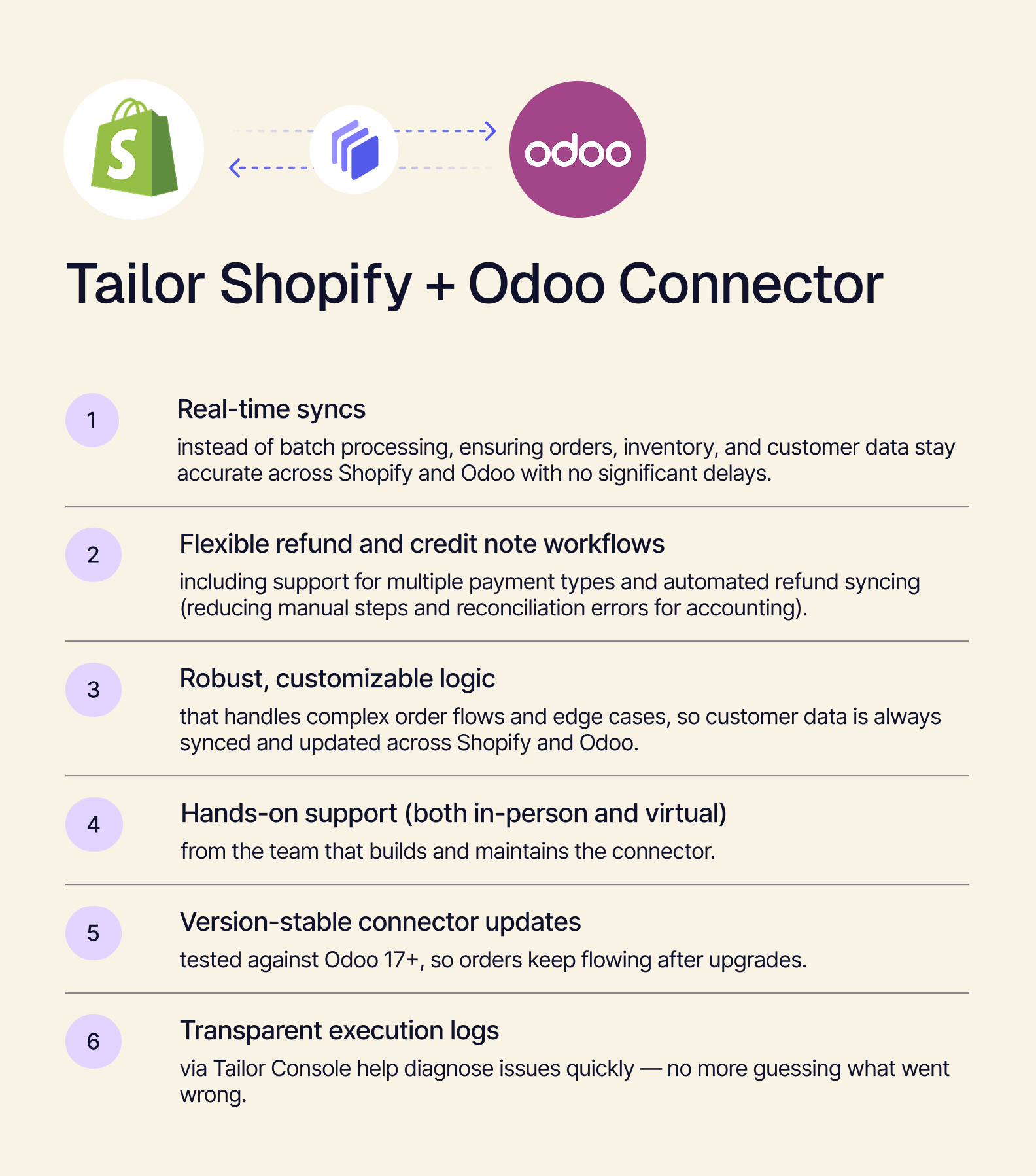
Tailor handled the full implementation and supported Universal Jewelry with onsite configuration sessions and custom logic builds to support their specific order flows, warehouse setup, and refund logic.
“With our old connector, we were manually fixing edge cases every single day, but the problem was that these edge cases were actually nuances of our operational model. From day one with Tailor, the number of manual fixes dropped significantly.” — Matthew Laskowski, Order Processing Representative and Engraver, Universal Jewelry
Tailor’s implementation and engineering team helped Universal Jewelry navigate unique edge cases in Shopify apps and discount logic (such as custom conditions for free silicone rings and polishing cloths) and built automation logic that could reliably support these flows.
Because Tailor’s architecture can handle advanced, custom logic and is built on an AI-powered platform, every time Universal Jewelry’s operations team flags new scenarios, the connector logic gets updated, creating a new automation based on their unique workflows.
“With Tailor, it actually feels like we have a partner — not just a vendor. Their team understands both the tech and the day-to-day reality of running a retail business. Instead of waiting weeks for fixes or explanations, we’re solving problems together in real time.” — James Kao, CEO, Universal Jewelry
The implementation was completed in under eight weeks, and Universal Jewelry was able to go live well before the next holiday order rush.
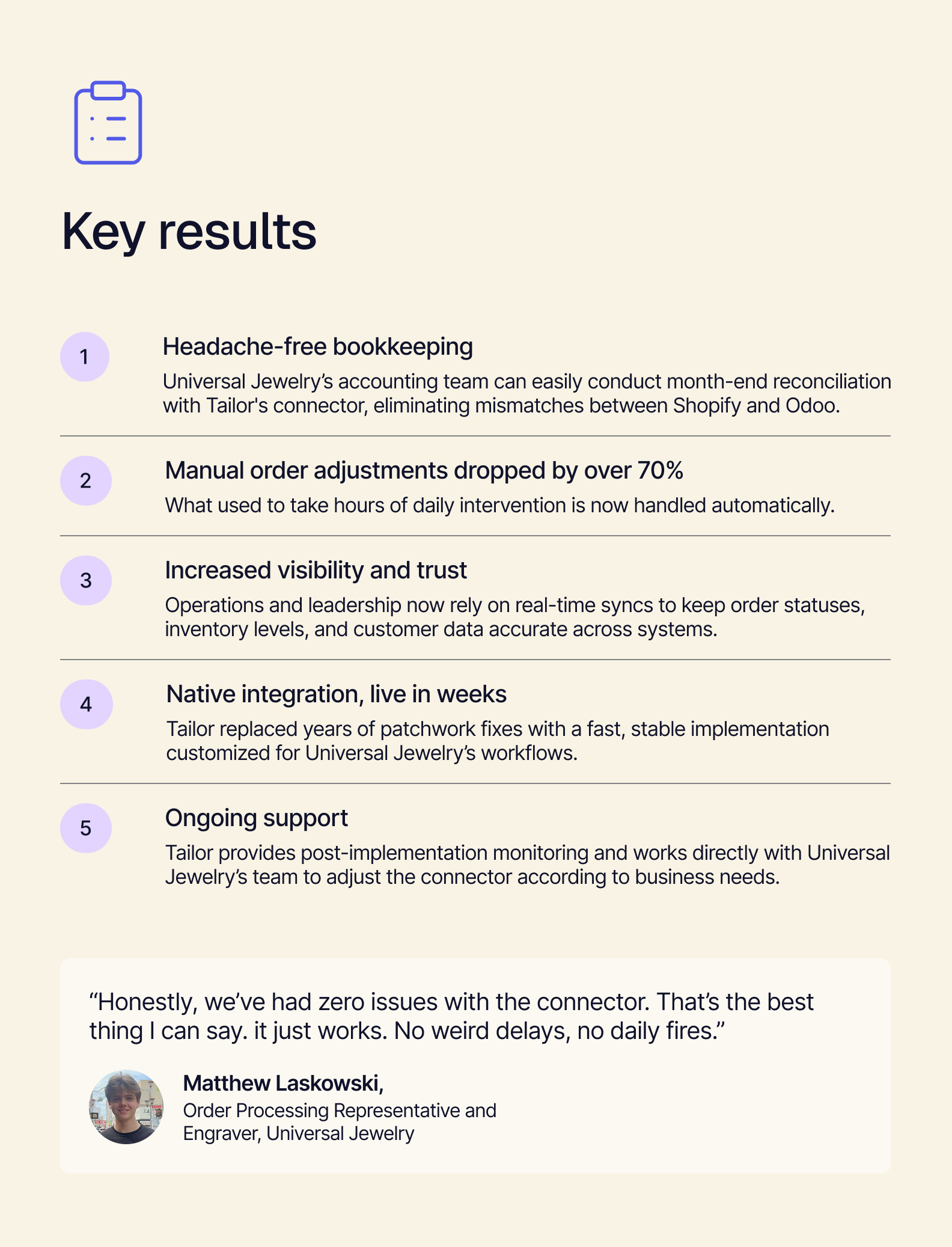
What’s next
With Tailor’s Shopify + Odoo connector live, Universal Jewelry is exploring a broader rollout of Tailor’s headless ERP platform for their inventory management system — especially since Tailor’s composable architecture enables teams to use best-of-breed accounting tools like QuickBooks.
Universal Jewelry is especially interested in improving:
- Lot-level inventory tracking
- Multi-location and 3PL management
- Forecasting and demand planning across all websites
- A better frontend interface for their operations team
Secure your spot before the holiday rush
Reach out to our team before November 1, 2025 to implement Tailor's Shopify + Odoo connector before the holiday shopping season.
Get started now
